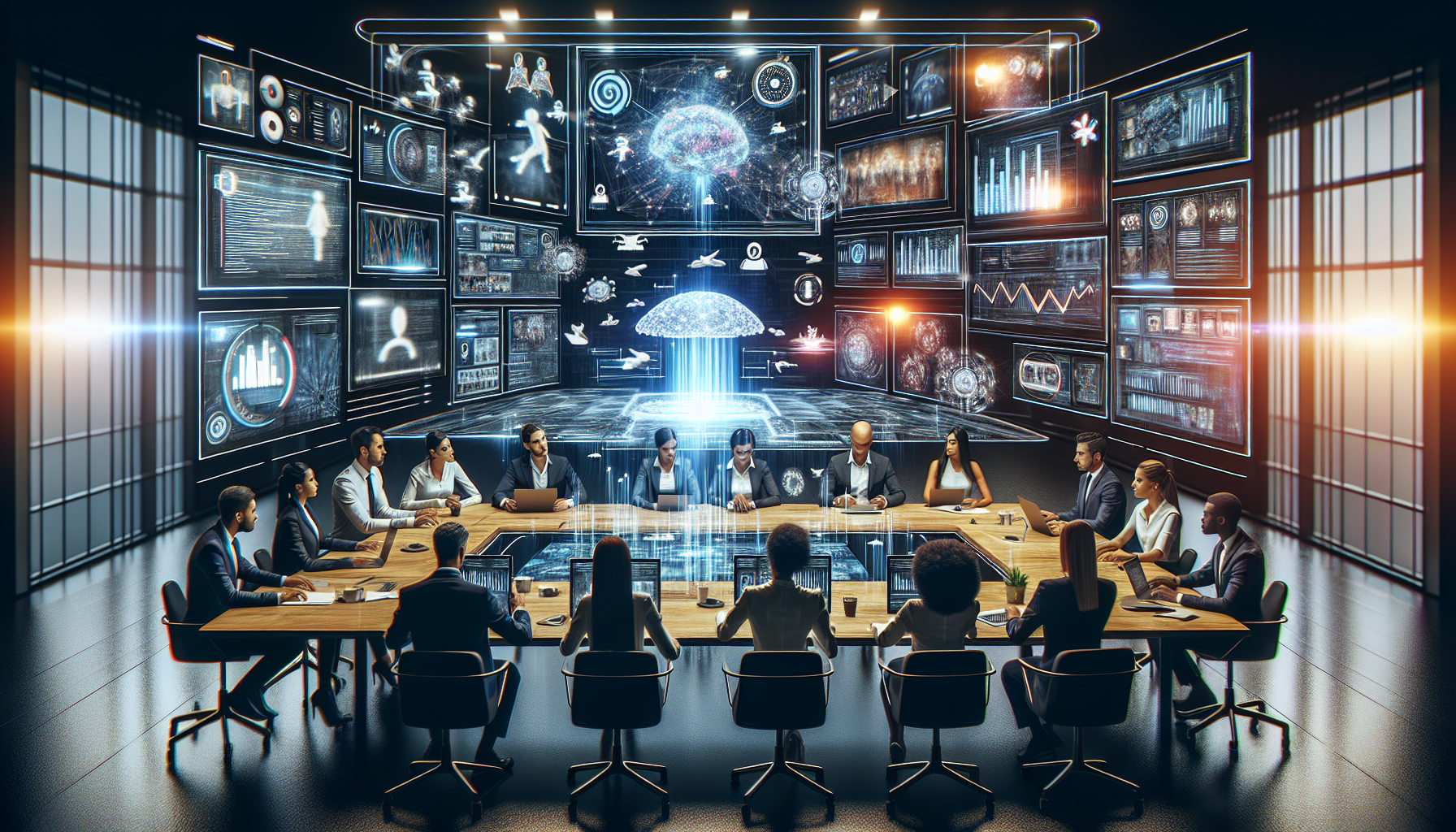
The Future of AI in Content Creation
Background
Artificial Intelligence (AI) has become a transformative force across various industries, and its impact on content creation is particularly significant. With the growing demand for personalized and engaging content, AI technologies are being leveraged to automate and enhance the creative process. According to the World Economic Forum (2025), AI is moving beyond mere experimentation to become integral in transforming industries, including content creation. However, the integration of AI in content creation presents challenges such as maintaining creativity and originality, ensuring quality, and addressing ethical concerns like bias and misinformation (World Economic Forum, 2025).
Current statistics highlight the burgeoning role of AI in this field. McKinsey & Company (2024) reports that over 60% of organizations are now adopting AI tools to streamline content production and delivery. Despite these advancements, there remains a critical need to balance AI-driven automation with human creativity to maintain authenticity and emotional resonance in content (McKinsey & Company, 2024). This dichotomy underscores the necessity for strategic AI implementation and robust data governance to optimize the benefits while mitigating potential drawbacks.
Challenges and Developments
The integration of AI into content creation is not without its challenges. One of the primary concerns is the potential loss of the human touch in content, which is essential for emotional connection and creativity. AI algorithms are proficient at generating content, but they often lack the nuanced understanding and emotional depth that human creators bring to the table (Kumar, 2025). For instance, while AI can produce grammatically correct and factually accurate text, it may struggle with humor, irony, and cultural references, which are crucial for engaging audiences.
Moreover, there is a growing concern about the quality and originality of AI-generated content. The risk of producing homogeneous content that lacks diversity in thought and perspective is significant. This challenge is compounded by the potential for AI to inadvertently propagate biases present in the data sets it learns from, thus perpetuating misinformation and stereotypes (World Economic Forum, 2025).
Despite these challenges, significant developments are being made in the field. AI technologies are increasingly being designed to complement rather than replace human creativity. For example, AI can handle repetitive and data-driven tasks, allowing human creators to focus on higher-level creative processes and storytelling. This symbiosis is evident in the use of AI for predictive content analytics, where AI tools analyze audience preferences and trends to inform content strategy and creation (McKinsey & Company, 2024).
Furthermore, advancements in AI are enabling more personalized content experiences. By leveraging data analytics, AI can tailor content to individual user preferences, enhancing engagement and satisfaction. This capability is particularly valuable in sectors such as marketing and entertainment, where personalized user experiences are paramount (Kumar, 2025).
Conclusion
Addressing the challenges of AI in content creation requires strategic implementation and a focus on maintaining quality and originality. AI Implementation and Capacity Building & Training are essential services that can help organizations navigate this landscape effectively. By investing in AI Implementation, companies can integrate advanced technologies that support creative processes without compromising the human touch. Additionally, Capacity Building & Training programs can equip content creators with the skills needed to work alongside AI, ensuring that they harness its capabilities to enhance rather than hinder creativity.
In conclusion, while AI presents challenges in maintaining creativity and originality, its potential to revolutionize content creation is undeniable. By strategically implementing AI and building capacity within teams, organizations can leverage AI's strengths to create engaging, personalized, and high-quality content that resonates with audiences worldwide.
References
Shaw, P. & Devgun, P. (2025) 'AI in Content Creation', International Journal of Future Management Research, Available here
McKinsey & Company (2024) 'The state of AI: How organizations are rewiring to capture value', McKinsey Global Survey, Available here
World Economic Forum (2025) 'AI in Action: Beyond Experimentation to Transform Industry', Available here